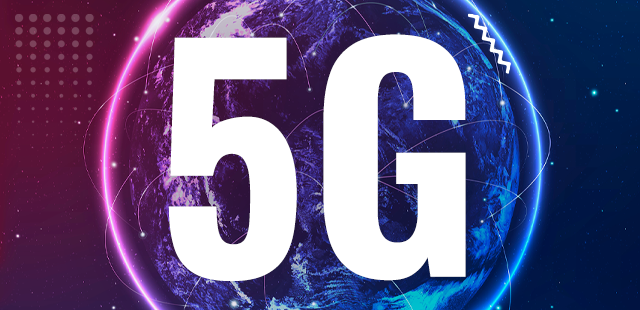5G has the potential to change our lives

Analyzing the possible applications of 5G network, it seems that it has the potential to change our lives – at least in some areas – to a degree comparable to the scale of changes that took place in developed countries in the period 1875-1925. Piotr Dubno, CFO of Motivizer, talks about the challenges and opportunities of 5G.
The 5G technology – an opportunity for Polish companies
Analyzing the possible applications of the 5G network, it seems that it has the potential to change our lives – at least in some areas – to a degree comparable to the scale of changes that took place in developed countries in the period 1875-1925. We cannot currently precisely determine which of the many possibilities for mobile data transmission will have the greatest significance in the near and distant future, but it is clear that if we want to avoid risking the competitiveness of Polish companies, they should have the opportunity to use 5G technology, significantly not later and not more expensive than companies from other industrialized countries.
The 5G technology – an opportunity for Polish companies
The challenges associated with the widespread implementation of 5G in Poland can be briefly grouped into 3 areas:
- Firstly, the network should be created relatively quickly (not significantly later than other developed countries), and this is associated with particular attention to the costs incurred (the more expensive it is, the later it will be created).
- Secondly, it should be reliable, not only in operation, but also in terms of the parameters offered. All the positive effects of the “technological leap” – including the ability to offer services that will require extremely low transmission delay (so-called latency of 1 ms) in combination with uninterrupted high-speed data transfer will only work if the network will really reliably maintain the quality parameters (without any errors, delays, etc.).
- Thirdly, the network should be secure in terms of both access to data of individual people or companies, as well as access to comprehensive data sets that, even in an anonymized form, will be a very (or even more than individual) valuable source of knowledge for various predictive models or even for shaping the possibilities of actively influencing the behavior of people and companies. Security considerations of telecommunication networks have always been extremely important, but in the case of 5G they are even more important – the data transmitted within the 5G network will be unimaginable larger, while at the same time using cloud infrastructure on a scale not used before and shifting computational power to the so-called edge of the network to shorten data transmission delays.
The mere combination of challenges in the areas of costs and construction speed, with reliability and security, creates difficult conditions for finding the “one perfect solution”. Additionally, the extremely fierce economic and geopolitical competition between the world’s largest economies and the broader allied-geopolitical conditions associated with this competition also does not make things easier.
Threats from total abandonment of the 4G network
It seems that in order to avoid delays in network construction and excessive costs, telecommunications operators’ previous experiences should be used to the greatest extent possible, as they have the most experience in terms of network security and reliability. They indicate that the challenge of choosing the optimal solution in terms of component and software solution providers for the 5G network is so complex and the reasoning about the challenges is so multi-threaded that a “drastically radical” scenario of completely eliminating some providers may be compiled and costly.
A more effective solution could be to apply greater detail in analyzing which elements of the network – in particular the core of the network – generate the most potential threat to security and are so complex and difficult to detect that the only solution is to limit the list of providers of these elements. We must remember that in Poland the quality of the existing 4G network is relatively very high, and the transition from 4G to 5G will be a gradual process. For the development of 5G, the existing 4G architecture will still be important for a long time and both networks will coexist. This operation will require precise planning by operators, and the possible “total bans” scenario of replacing already installed devices of some manufacturers with devices of other manufacturers would further complicate the situation by increasing costs and prolonging the time needed to build and launch the 5G network.
Given the complexity of the challenges and the importance of cost, building time and reliability of the 5G network, including the widely understood cyber security, telecommunications operators should have as broad a voice as possible in the discussion of possible scenarios of action – they are closest to practical solutions that can reduce or eliminate many of the risks indicated in this discussion.
Autor:
Piotr Dubno, CFO Motivizer
Recent Posts:
- Capital24.tv Debate with Piotr Dubno – “Economy, Innovation, Investments. What Changes Await Us?
- The future of HR – what will be the key to organizational success?
- Are you keeping up with the idea of a modern workplace?
- Burnout, how can an employer help an employee?
- Digitalization of HR is key to unlocking the full potential of an organization

